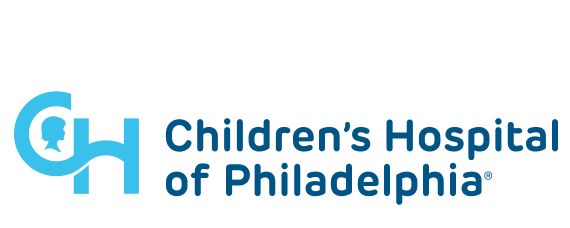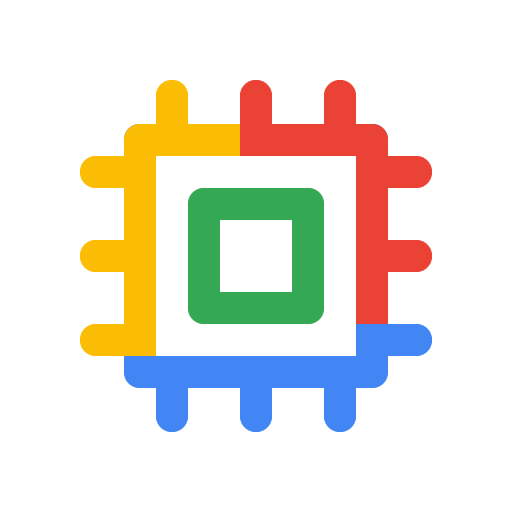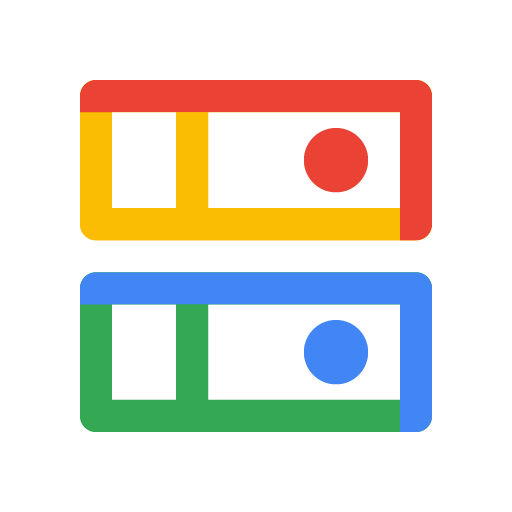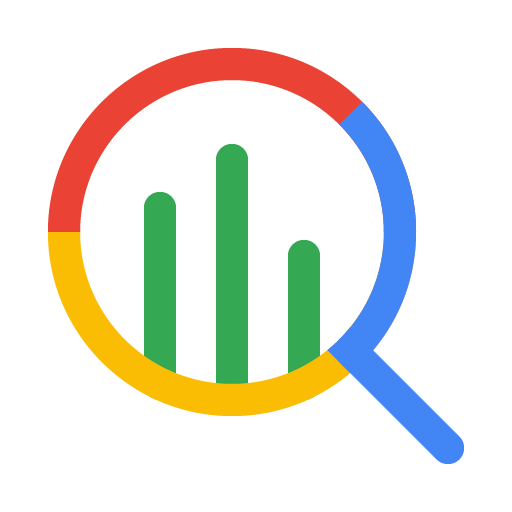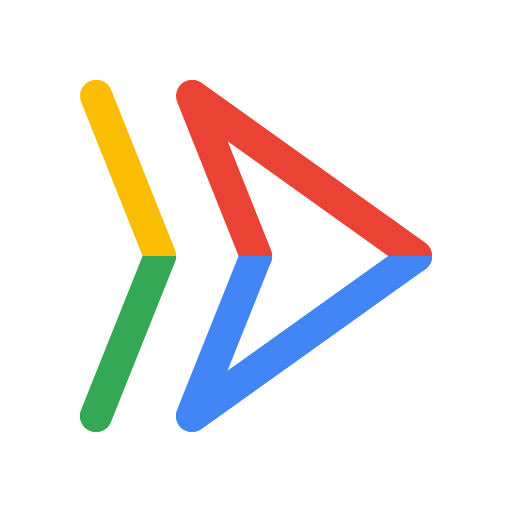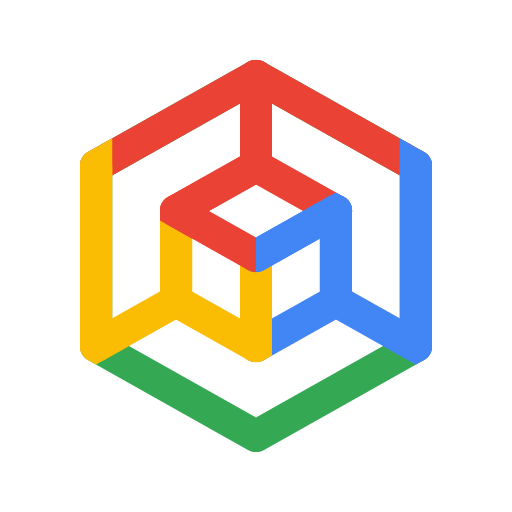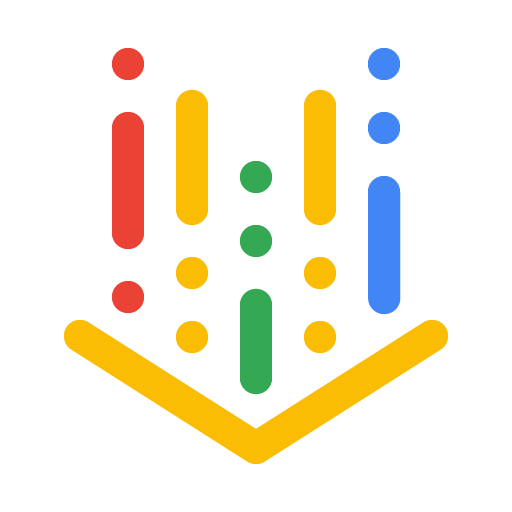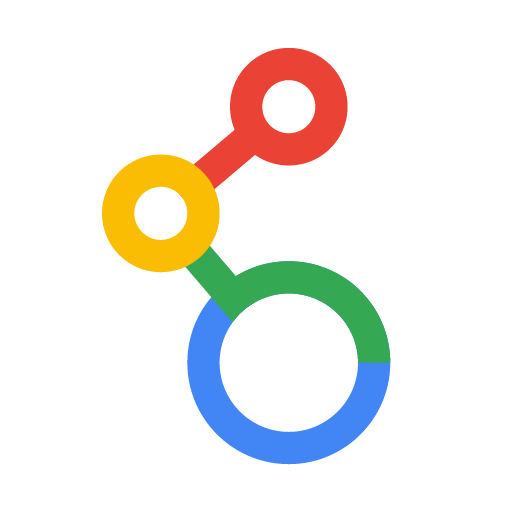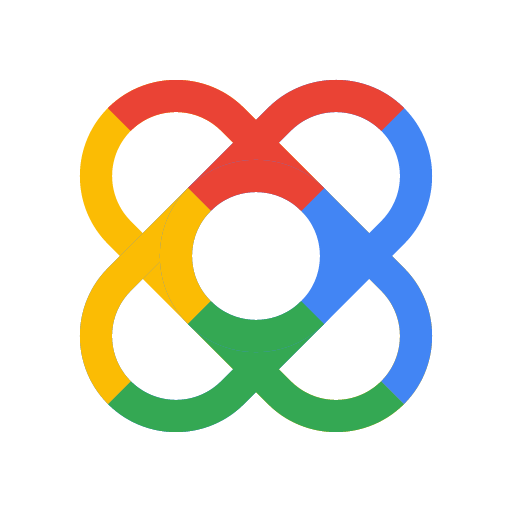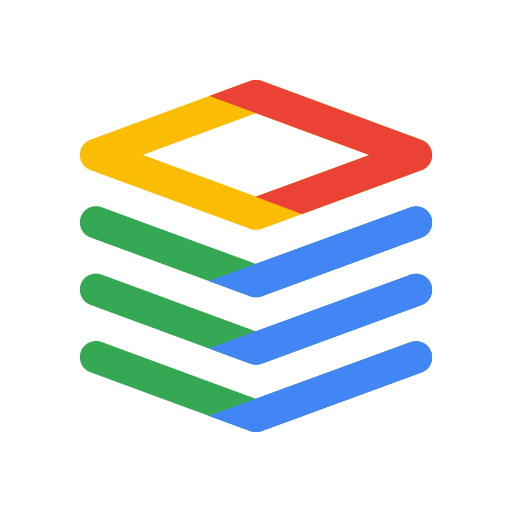-
Provides full-context insight into patient health histories to improve speed, accuracy, and compassion in pediatric care
-
Reduces model training time without increasing costs
-
Eliminates reliance on retrieval-based systems that take precious time and may fail to interpret full context
Children's Hospital of Philadelphia used secure Google Cloud Trillium TPUs to train a reasoning AI assistant that aims to give researchers and, one day, physicians deep insight from patient histories to help accelerate and improve pediatric care.
Children's Hospital of Philadelphia used secure Google Cloud Trillium TPUs to train a reasoning AI assistant that aims to give researchers and, one day, physicians deep insight from patient histories to help accelerate and improve pediatric care.
When the stakes are as high as a child's health, accuracy and speed in medical care are non-negotiable — but time pressures and fragmented patient data create a barrier to providing optimal pediatric care. While technologies exist to help physicians comb through dense repositories of electronic health records (EHRs), most systems fail to understand the full context of a patient's health history, which can slow down essential diagnosis and treatment processes.
Researchers at the Children's Hospital of Philadelphia (CHOP) imagined a future where technology could overcome these obstacles and help physicians focus on providing precise, compassionate, and timely care.
"We asked ourselves, what if there was an AI medical assistant that could help physicians better understand their patients? An AI that could answer any question about a patient that's sitting in front of them?," says Dr. Ian Campbell, a pediatric medical geneticist and assistant professor of pediatrics at CHOP. "That's what we set out to build."
With Google Cloud , Dr. Campbell and his team created a secure, compliant AI assistant that has the potential to one day give physicians deep, contextual insight into patient health histories to improve the speed and quality of pediatric medicine.
We asked ourselves, what if there was an AI medical assistant that could help physicians better understand their patients? An AI that could answer any question about a patient that's sitting in front of them? That's what we set out to build.
Dr. Ian Campbell
Assistant Professor of Pediatrics, CHOP
Navigating clinical data overload while protecting patient privacy
In one instance, a RAG system incorrectly reported that a patient had never been prescribed antiarrhythmic medications, despite explicit references to such medications in the EHR. To overcome these limitations and inaccuracies, we decided to pre-train our model to learn about the patient in advance while protecting their privacy.
Dr. Ian Campbell
Assistant Professor of Pediatrics, CHOP
Physicians rely on information from EHRs to deliver appropriate patient care, but manually reviewing the entirety of each patient's health history isn't possible in the always-on world of a pediatric hospital. Many medical facilities are experimenting with AI-based systems that rely on retrieval-augmented generation (RAG) to pull relevant information from EHRs, but these solutions are costly and slow. They also struggle to interpret medical context within EHRs, which can contain millions of data points about individual patients. Moreover, the lack of model learning limits RAG systems to brief, incomplete impressions during inference.
"In one instance, a RAG system incorrectly reported that a patient had never been prescribed antiarrhythmic medications, despite explicit references to such medications in the EHR," Dr. Campbell explains. "To overcome these limitations and inaccuracies, we decided to pre-train our model to learn about the patient in advance while protecting their privacy."
However, as a nonprofit hospital, CHOP lacked the necessary AI accelerators and on-premises computational capacity to train such an ambitious model. Dealing with private health information also required strict compliance with Health Insurance Portability and Accountability Act (HIPAA) regulations. To address these infrastructure gaps while safeguarding patient data, Dr. Campbell and his team turned to Google Cloud.
Building a patient-specific AI assistant with MaxText on Google Cloud
Instead of relying on retrieval-based systems, Dr. Campbell's team developed a reasoning-based model capable of patient-specific understanding. This AI assistant uses models based on Llama 3.3 70B and other advanced architectures to effectively pre-learn the medical histories of over 1.6 million pediatric patients, using 146 million clinical notes as training data. The team used open-source JAX and MaxText to train their AI assistant with Trillium TPUs from Google Cloud, partially supported by the TPU Research Cloud .
"MaxText includes all the essential features of LLM training, including resumable deterministic data loading, fully customizable gradient re-materialization, CPU offload, and asynchronized emergency checkpointing," Dr. Campbell notes. "It made transitioning to the cloud very straightforward."
Privacy and security are our top priorities at CHOP. Our institutional review board is there to protect our human subjects, while our AI governance committee ensures that we are using the technology responsibly.
Dr. Ian Campbell
Assistant Professor of Pediatrics, CHOP
Given the sensitivity of pediatric medical data, CHOP's institutional review board and AI governance committees supervised the project. All model training and inference occurred in the strictly controlled, HIPAA-compliant environment within Google Cloud to ensure patient privacy.
"Privacy and security are our top priorities at CHOP," Dr. Campbell says. "Our institutional review board is there to protect our human subjects, while our AI governance committee ensures that we are using the technology responsibly."
Within this secure and compliant infrastructure, the AI assistant retains deep contextual knowledge about each patient, enabling fast and accurate responses in clinically relevant settings. For example, it showed powerful reasoning capabilities when answering why a patient required a liver transplant. Using only the patient's name, date of birth, and EHR number, it recalled everything it knew about the patient, including rare genetic conditions, metabolic crises, liver biopsies, and subsequent diagnoses.
"This was the first question I asked our new reasoning model," Dr. Campbell recalls. "I immediately thought, 'This might be the future of medicine.'"
Improving pediatric healthcare through collaborative innovation
As a clinician, I'm excited about a future where AI can help me take better care of my patients. I look forward to bringing this innovation to the industry to help improve pediatric care everywhere.
Dr. Ian Campbell
Assistant Professor of Pediatrics, CHOP
Where traditional RAG systems sometimes failed in the past, CHOP's reasoning-based AI assistant succeeds for the future. Its ability to process and recall patient-specific histories will one day help clinicians make quick, informed decisions. By acting as a collaborative partner to physicians, the assistant provides a glimpse of a new standard for operational efficiency in patient care.
"In addition to understanding deep context from a patient's history, our AI assistant learns the culture and practices of the health system that it serves," Dr. Campbell explains. "It can learn how to implement our hospital's treatment pathways or the styles and preferences of individual clinicians."
The model currently supports CHOP's research projects by delivering insights on participants while always prioritizing patient privacy and aligning with compliance frameworks. And by leveraging the computational power of Trillium TPUs, the CHOP team reduced the time to train its model at a nonprofit-friendly price point.
While this AI assistant already provides promising results within CHOP's ecosystem, the team aims to collaborate with other institutions to help them train their own models using their unique datasets. Efforts are also underway to expand the model from 70 billion parameters to even larger architectures, introduce reinforcement learning to improve emerging tasks, and explore other model types for more adaptive capabilities.
"As a clinician, I'm excited about a future where AI can help me take better care of my patients," Dr. Campbell says. "I look forward to bringing this innovation to the industry to help improve pediatric care everywhere."
Founded in 1855, the Children's Hospital of Philadelphia is the nation's first freestanding pediatric hospital, recognized for providing world-class care and industry-leading research.
Industry: Healthcare and Life Sciences
Location: United States
Products: Google Cloud , Trillium TPUs
- Accelerate your digital transformation
- Whether your business is early in its journey or well on its way to digital transformation, Google Cloud can help solve your toughest challenges.
- Key benefits
- Featured Products
- AI and Machine Learning
- Business Intelligence
- Compute
- Containers
- Data Analytics
- Databases
- Developer Tools
- Distributed Cloud
- Hybrid and Multicloud
- Industry Specific
- Integration Services
- Management Tools
- Maps and Geospatial
- Media Services
- Migration
- Mixed Reality
- Networking
- Operations
- Productivity and Collaboration
- Security and Identity
- Serverless
- Storage
- Web3
- Featured Products
- Not seeing what you're looking for?
- See all products (100+)
- Not seeing what you're looking for?
- See all AI and machine learning products
- Business Intelligence
- Not seeing what you're looking for?
- See all compute products
- Not seeing what you're looking for?
- See all data analytics products
- Not seeing what you're looking for?
- See all developer tools
- Hybrid and Multicloud
- Industry Specific
- Not seeing what you're looking for?
- See all management tools
- Media Services
- Not seeing what you're looking for?
- See all networking products
- Productivity and Collaboration
- Not seeing what you're looking for?
- See all security and identity products
- Save money with our transparent approach to pricing
- Google Cloud's pay-as-you-go pricing offers automatic savings based on monthly usage and discounted rates for prepaid resources. Contact us today to get a quote.
- Pricing overview and tools
- Product-specific Pricing
- Learn & build
- Connect
- Accelerate your digital transformation
- Learn more
- Key benefits
- Why Google Cloud
- AI and ML
- Multicloud
- Global infrastructure
- Data Cloud
- Modern Infrastructure Cloud
- Security
- Productivity and collaboration
- Reports and insights
- Executive insights
- Analyst reports
- Whitepapers
- Customer stories
- Industry Solutions
- Retail
- Consumer Packaged Goods
- Financial Services
- Healthcare and Life Sciences
- Media and Entertainment
- Telecommunications
- Games
- Manufacturing
- Supply Chain and Logistics
- Government
- Education
- See all industry solutions
- See all solutions
- Application Modernization
- CAMP
- Modernize Traditional Applications
- Migrate from PaaS: Cloud Foundry, Openshift
- Migrate from Mainframe
- Modernize Software Delivery
- DevOps Best Practices
- SRE Principles
- Platform Engineering
- Run Applications at the Edge
- Architect for Multicloud
- Go Serverless
- Artificial Intelligence
- Customer Engagement Suite with Google AI
- Document AI
- Vertex AI Search for commerce
- Google Cloud with Gemini
- Generative AI on Google Cloud
- APIs and Applications
- New Business Channels Using APIs
- Unlocking Legacy Applications Using APIs
- Open Banking APIx
- Data Analytics
- Data Migration
- Data Lakehouse
- Real-time Analytics
- Marketing Analytics
- Datasets
- Business Intelligence
- AI for Data Analytics
- Geospatial Analytics
- Databases
- Database Migration
- Database Modernization
- Databases for Games
- Google Cloud Databases
- Migrate Oracle workloads to Google Cloud
- Open Source Databases
- SQL Server on Google Cloud
- Gemini for Databases
- Infrastructure Modernization
- Application Migration
- SAP on Google Cloud
- High Performance Computing
- Windows on Google Cloud
- Data Center Migration
- Active Assist
- Virtual Desktops
- Rapid Migration and Modernization Program
- Backup and Disaster Recovery
- Red Hat on Google Cloud
- Cross-Cloud Network
- Observability
- Productivity and Collaboration
- Google Workspace
- Google Workspace Essentials
- Cloud Identity
- Chrome Enterprise
- Security
- Agentic SOC
- Web App and API Protection
- Security and Resilience Framework
- Risk and compliance as code (RCaC)
- Software Supply Chain Security
- Security Foundation
- Google Cloud Cybershield™
- Startups and SMB
- Startup Program
- Small and Medium Business
- Software as a Service
- Featured Products
- Compute Engine
- Cloud Storage
- BigQuery
- Cloud Run
- Google Kubernetes Engine
- Vertex AI
- Looker
- Apigee API Management
- Cloud SQL
- Gemini Enterprise
- Cloud CDN
- See all products (100+)
- AI and Machine Learning
- Vertex AI Platform
- Vertex AI Studio
- Vertex AI Agent Builder
- Conversational Agents
- Vertex AI Search
- Speech-to-Text
- Text-to-Speech
- Translation AI
- Gemini Enterprise
- Vision AI
- Contact Center as a Service
- See all AI and machine learning products
- Business Intelligence
- Looker
- Looker Studio
- Compute
- Compute Engine
- App Engine
- Cloud GPUs
- Migrate to Virtual Machines
- Spot VMs
- Batch
- Sole-Tenant Nodes
- Bare Metal
- Recommender
- VMware Engine
- Cloud Run
- See all compute products
- Containers
- Google Kubernetes Engine
- Cloud Run
- Cloud Build
- Artifact Registry
- Cloud Code
- Cloud Deploy
- Migrate to Containers
- Deep Learning Containers
- Knative
- Data Analytics
- BigQuery
- Looker
- Dataflow
- Pub/Sub
- Dataproc
- Google Cloud Serverless for Apache Spark
- Cloud Composer
- BigLake
- Dataplex Universal Catalog
- BigQuery Migration Services
- Managed Service for Apache Kafka
- See all data analytics products
- Databases
- AlloyDB for PostgreSQL
- Cloud SQL
- Firestore
- Spanner
- Bigtable
- Datastream
- Database Migration Service
- Bare Metal Solution
- Memorystore
- Developer Tools
- Artifact Registry
- Cloud Code
- Cloud Build
- Cloud Deploy
- Cloud Deployment Manager
- Cloud SDK
- Cloud Scheduler
- Cloud Source Repositories
- Infrastructure Manager
- Cloud Workstations
- Gemini Code Assist
- See all developer tools
- Distributed Cloud
- Google Distributed Cloud Connected
- Google Distributed Cloud Air-gapped
- Hybrid and Multicloud
- Google Kubernetes Engine
- Apigee API Management
- Migrate to Containers
- Cloud Build
- Observability
- Cloud Service Mesh
- Google Distributed Cloud
- Industry Specific
- Anti Money Laundering AI
- Cloud Healthcare API
- Device Connect for Fitbit
- Telecom Network Automation
- Telecom Data Fabric
- Telecom Subscriber Insights
- Spectrum Access System (SAS)
- Integration Services
- Application Integration
- Workflows
- Apigee API Management
- Cloud Tasks
- Cloud Scheduler
- Dataproc
- Cloud Data Fusion
- Cloud Composer
- Pub/Sub
- Eventarc
- Management Tools
- Cloud Shell
- Cloud console
- Cloud Endpoints
- Cloud IAM
- Cloud APIs
- Service Catalog
- Cost Management
- Observability
- Carbon Footprint
- Config Connector
- Active Assist
- See all management tools
- Maps and Geospatial
- Earth Engine
- Google Maps Platform
- Media Services
- Cloud CDN
- Live Stream API
- OpenCue
- Transcoder API
- Video Stitcher API
- Migration
- Migration Center
- Application Migration
- Migrate to Virtual Machines
- Cloud Foundation Toolkit
- Database Migration Service
- Migrate to Containers
- BigQuery Migration Services
- Rapid Migration and Modernization Program
- Transfer Appliance
- Storage Transfer Service
- VMware Engine
- Mixed Reality
- Immersive Stream for XR
- Networking
- Cloud Armor
- Cloud CDN and Media CDN
- Cloud DNS
- Cloud Load Balancing
- Cloud NAT
- Cloud Connectivity
- Network Connectivity Center
- Network Intelligence Center
- Network Service Tiers
- Virtual Private Cloud
- Private Service Connect
- See all networking products
- Operations
- Cloud Logging
- Cloud Monitoring
- Error Reporting
- Managed Service for Prometheus
- Cloud Trace
- Cloud Profiler
- Cloud Quotas
- Productivity and Collaboration
- AppSheet
- Gemini Enterprise
- Google Workspace
- Google Workspace Essentials
- Cloud Identity
- Chrome Enterprise
- Security and Identity
- Cloud IAM
- Sensitive Data Protection
- Mandiant Managed Defense
- Google Threat Intelligence
- Security Command Center
- Cloud Key Management
- Mandiant Incident Response
- Chrome Enterprise Premium
- Assured Workloads
- Google Security Operations
- Mandiant Consulting
- See all security and identity products
- Serverless
- Cloud Run
- Cloud Functions
- App Engine
- Workflows
- API Gateway
- Storage
- Cloud Storage
- Block Storage
- Filestore
- Persistent Disk
- Cloud Storage for Firebase
- Local SSD
- Storage Transfer Service
- Google Cloud Managed Lustre
- Google Cloud NetApp Volumes
- Backup and DR Service
- Web3
- Blockchain Node Engine
- Blockchain RPC
- Save money with our transparent approach to pricing
- Request a quote
- Pricing overview and tools
- Google Cloud pricing
- Pricing calculator
- Google Cloud free tier
- Cost optimization framework
- Cost management tools
- Product-specific Pricing
- Compute Engine
- Cloud SQL
- Google Kubernetes Engine
- Cloud Storage
- BigQuery
- See full price list with 100+ products
- Learn & build
- Google Cloud Free Program
- Solution Generator
- Quickstarts
- Blog
- Learning Hub
- Google Cloud certification
- Cloud computing basics
- Cloud Architecture Center
- Connect
- Innovators
- Developer Center
- Events and webinars
- Google Cloud Community
- Consulting and Partners
- Google Cloud Consulting
- Google Cloud Marketplace
- Find a partner
- Google Cloud partners

